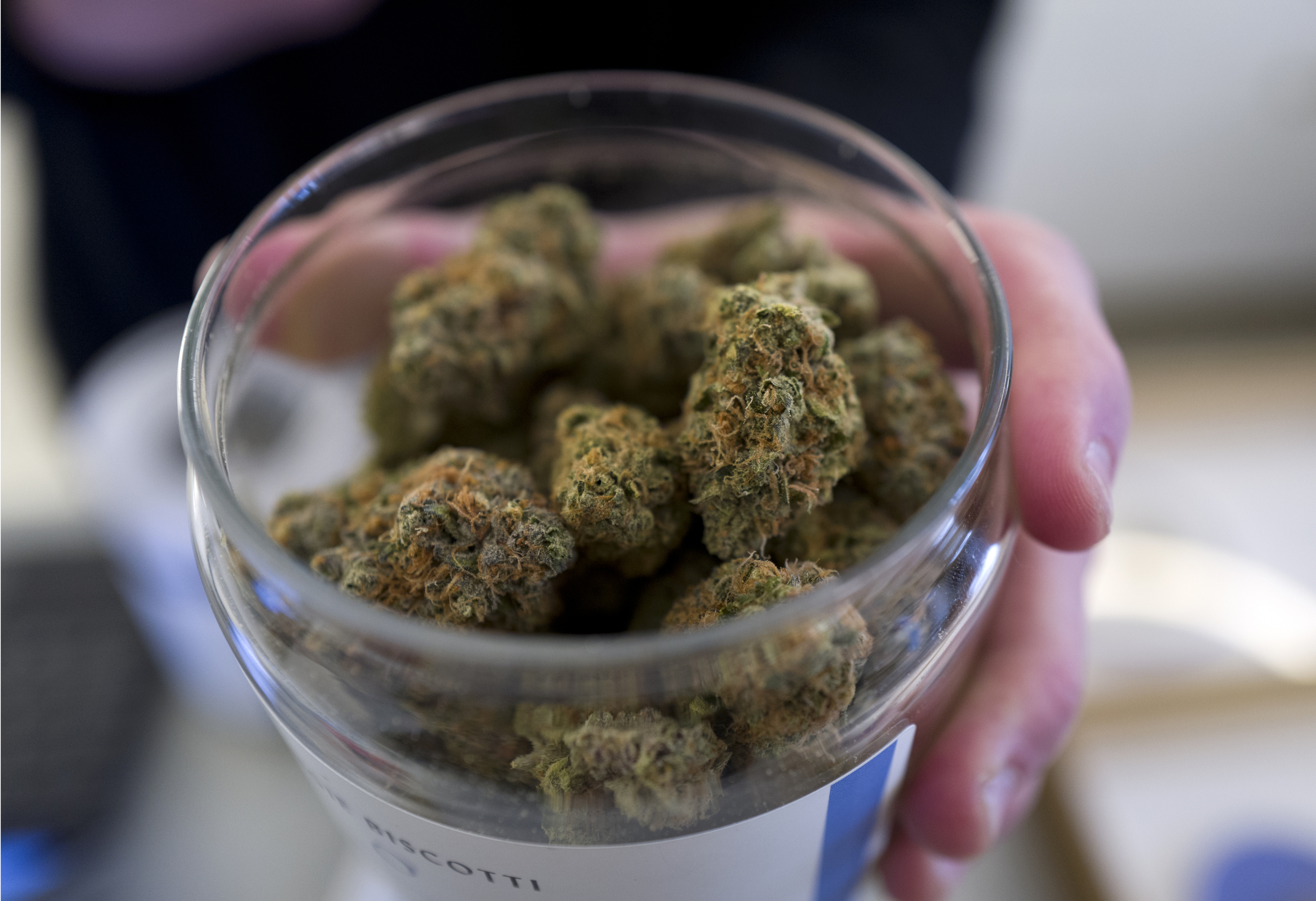- Two hearings on hemp production and banking for cannabis companies stirred up volatility in cannabis stocks last week.
- The hearings show progress but also confusion over how cannabis should be regulated in the US.
- Activists and industry watchers say legalization is coming, but the process for it is unclear. Still, the market for CBD and cannabis products is growing and investors see promising returns on the horizon.
- Read more on Markets Insider.
Pot stocks have been subject to recent volatility as a number of key hearings show that, while there is support for progress on cannabis regulations, there’s confusion from legislators about how to best proceed.
Shares of Tilray, Cronos, and Curaleaf slid around 2% last Thursday after a hearing with the Senate Committee on Agriculture, Nutrition and Forestry entitled “Hemp production and the 2018 Farm Bill.” Aurora and Canopy Growth were mostly flat following the hearing.
The cannabis industry in the US and abroad is growing much faster than regulation is being introduced, said Bethany Gomez, the managing director of Brightfield Group, a market research and predictive analytics firm.
“Everyone is begging for regulations,” Gomez said. “There’s still a lot of confusion and a lot of legal gray area surrounding those products.”
Even though the 2018 Farm Bill federally legalized hemp and its derivatives, the Food and Drug Administration has yet to release clear guidelines on the marketing and sale of CBD products. It is also currently illegal for banks and financial institutions to work with cannabis companies, even though the Secure And Fair Enforcement (SAFE) Banking Act, which would reverse this, has bipartisan support.
The stakes are high for the US government and for companies that produce and sell cannabis products. It has been estimated that the CBD industry alone could grow to be a $16 billion industry by 2025. Globally, the legal marijuana market could reach $66.3 billion in the same timeframe.
Per the FDA's current rules, products with CBD - a hemp extract that doesn't make the user high - cannot be sold over state lines, and products with CBD cannot be marketed as a health or dietary supplement. This means that it can be difficult for companies that produce and sell CBD products to describe what they offer to consumers.
Take Curaleaf for example. It took a hit last week after the FDA sent the company a letter saying some of its products don't have approval to be sold in the US. Shares also came under pressure after CVS Pharmacy said it would pull Curaleaf products from its stores.
Other companies have also contended with FDA letters. In 2017, Charlotte's Web Holdings, then called Stanely Brothers, was issued a similar letter by the FDA. This year, PotNetwork Holdings was also issued a letter by the FDA, which sent its stock down slightly although it has since regained its losses.
"It's a delicate tightrope for those companies to walk," Gomez said.
But the confusion at the federal level has also boosted pot stocks in some cases. As cannabis has become more mainstream and companies begin to list on public exchanges - US companies in Canada, and Canadian companies in the US - more money has flowed into the industry.
"The position of the federal government on cannabis has made the job of the cannabis industry more difficult, but that industry is still one of the most rapidly growing industries in the US," said Steve Deangelo, a cannabis activist and co-founder of Harborside, a cannabis company in California.
Another hearing earlier in the week on cannabis banking reform sent Tilray, Canopy Growth and Aurora up as much as 2% after positive signs from Senate Banking Chairman Mike Crapo that the SAFE act wouldn't face any obstacles moving forward.
The gray area in the CBD market has also presented an opportunity for cannabis companies, Gomez said. For many consumers, it's played a part in normalizing the idea of using a product derived from cannabis and has driven talks about legalization.
"It is unclear what the road ahead will look like. We're in the midst of a pro-cannabis cultural shift, CBD has played a part of accelerating the speed of that shift," said Martin Lee, the director of Project CBD.
The market potential, which analysts say could reach $16 billion by 2025, has driven shares higher as well. When Cronos announced that it plans to enter the US CBD market within the next year, it gained more than 15%.
It's also attracted talent and deals that have boosted stocks. Cronos jumped more than 3% when it announced that a veteran from Mondelez International, the maker of Oreo cookies, would join as its chief innovation officer. In August 2018, beer conglomerate Constellation Brands paid $4 billion for a 38% stake in Canopy, which was the first major corporate investment in a marijuana cultivator.
Canopy Growth also completed a major deal when it spent $3.4 billion to purchase Acreage Holdings, a US pot company, pending the federal legalization of marijuana in the US. Tilray surged 18% when it announced its intent to join Privateer Holdings, its majority shareholder, and extended its shares lock-up period.
Further legislation that's been recently introduced could also move the industry forward. Presidential hopefuls Sen. Corey Booker, Sen. Elizabeth Warren, and Sen. Kamala Harris with House Judiciary Committee Chairman Jerry Nadler have all introduced different bills about marijuana that include decriminalization at the federal level or would leave it up to states.
The consensus is that legalization will occur at some point - it's a question of "how", not "when." Companies have already set themselves up to profit - Whole Foods and Coca-Cola have said that they're eyeing the market and Heineken and Molson Coors have produced CBD or THC infused products.
More from Markets Insider:

